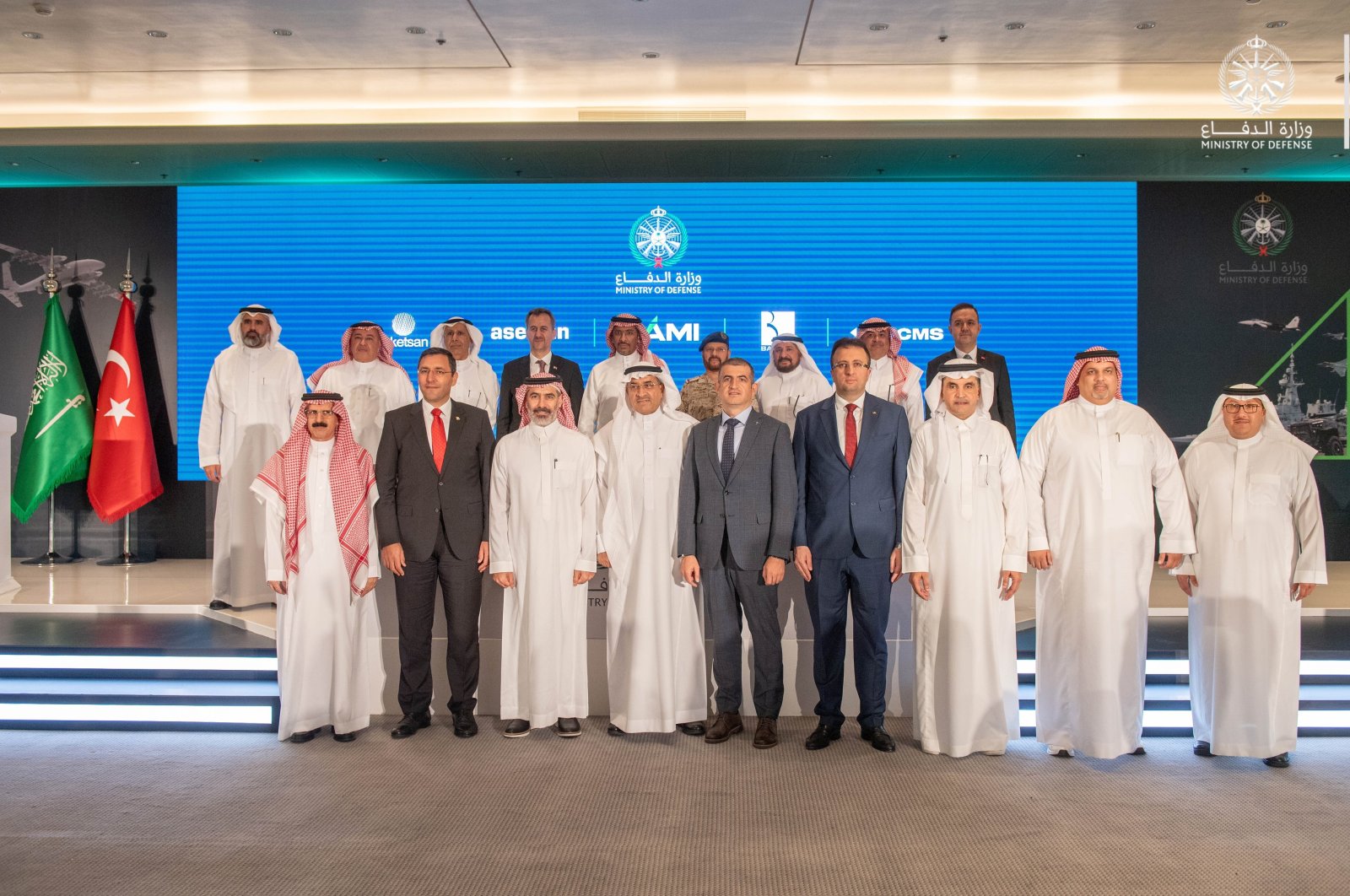Saudi Arabia and Türkiye’s drone pioneer h" />
- Merkel set for fourth term as chancellor as CDU leads parliamentary vote, exit polls say
- Turkey says it will send back ISIS prisoners even if citizenships revoked
- General Marchenko: ‘Mykolaiv was to be next city to fall, but Russia terribly failed’
- Ukrainian Armed Forces repel enemy attacks in four regions
- Somalia president hails lifting of arms embargo as government vows to wipe out al-Shabab militants
- Captured Somali pirates arrive in India to face trial over ship hijacking
- Martyred while serving nation: President Raisi dies in helicopter crash
- Stay Connected
Saudi Arabia, Türkiye’s Baykar build on record drone sale with new deal
Saudi Arabia and Türkiye’s drone pioneer have signed a strategic agreement to localize the manufacturing of unmanned aerial vehicles (UAVs) in the kingdom, the sides said on Sunday, building on a historic deal signed last month.
 Turkish and Saudi Arabian defense officials and executives pose for a photo after a signing ceremony in Riyadh, Saudi Arabia, July 6, 2023. (Courtesy of SAMI)
Turkish and Saudi Arabian defense officials and executives pose for a photo after a signing ceremony in Riyadh, Saudi Arabia, July 6, 2023. (Courtesy of SAMI)
All News
-
Erdoğan unveils Turkey’s plan to build a spaceport in Somalia: report
-
Israeli genocide in Gaza sees death toll cross grim 44,000 mark
-
Lebanon’s housing sector crumbles, rental demand surges amid Israel-Hezbollah war
-
Russia Fired Experimental Hypersonic Missile at Ukraine in Response to Western Long-Range Missiles – Putin
-
ICC slaps Netanyahu, Gallant with arrest warrants for war crimes
-
Donald Trump expected to consider recognizing Somaliland independence, former UK defense minister says
-
US embassy in Kyiv shutters after ‘significant’ air attack threat By Tamsin Paternoster
-
Opposition leader wins Somaliland presidential contest
-
Israeli strikes rattle Beirut, as peace talks begin to take shape
-
Zelenskyy says ‘missiles will speak for themselves’ as Biden OKs long-range use
- Home
- Merkel set for fourth term as chancellor as CDU leads parliamentary vote, exit polls say
- Turkey says it will send back ISIS prisoners even if citizenships revoked
- General Marchenko: ‘Mykolaiv was to be next city to fall, but Russia terribly failed’
- Ukrainian Armed Forces repel enemy attacks in four regions
- Somalia president hails lifting of arms embargo as government vows to wipe out al-Shabab militants
- Captured Somali pirates arrive in India to face trial over ship hijacking
- Martyred while serving nation: President Raisi dies in helicopter crash
- RSS
Contact@kasmaal.com
- Merkel set for fourth term as chancellor as CDU leads parliamentary vote, exit polls say
- Turkey says it will send back ISIS prisoners even if citizenships revoked
- General Marchenko: ‘Mykolaiv was to be next city to fall, but Russia terribly failed’
- Ukrainian Armed Forces repel enemy attacks in four regions
- Somalia president hails lifting of arms embargo as government vows to wipe out al-Shabab militants
- Captured Somali pirates arrive in India to face trial over ship hijacking
- Martyred while serving nation: President Raisi dies in helicopter crash
- Stay Connected
Saudi Arabia, Türkiye’s Baykar build on record drone sale with new deal
Saudi Arabia and Türkiye’s drone pioneer have signed a strategic agreement to localize the manufacturing of unmanned aerial vehicles (UAVs) in the kingdom, the sides said on Sunday, building on a historic deal signed last month.

Turkish and Saudi Arabian defense officials and executives pose for a photo after a signing ceremony in Riyadh, Saudi Arabia, July 6, 2023. (Courtesy of SAMI)
All News
- Erdoğan unveils Turkey’s plan to build a spaceport in Somalia: report
- Israeli genocide in Gaza sees death toll cross grim 44,000 mark
- Lebanon’s housing sector crumbles, rental demand surges amid Israel-Hezbollah war
- Russia Fired Experimental Hypersonic Missile at Ukraine in Response to Western Long-Range Missiles – Putin
- ICC slaps Netanyahu, Gallant with arrest warrants for war crimes
- Donald Trump expected to consider recognizing Somaliland independence, former UK defense minister says
- US embassy in Kyiv shutters after ‘significant’ air attack threat By Tamsin Paternoster
- Opposition leader wins Somaliland presidential contest
- Israeli strikes rattle Beirut, as peace talks begin to take shape
- Zelenskyy says ‘missiles will speak for themselves’ as Biden OKs long-range use
- Home
- Merkel set for fourth term as chancellor as CDU leads parliamentary vote, exit polls say
- Turkey says it will send back ISIS prisoners even if citizenships revoked
- General Marchenko: ‘Mykolaiv was to be next city to fall, but Russia terribly failed’
- Ukrainian Armed Forces repel enemy attacks in four regions
- Somalia president hails lifting of arms embargo as government vows to wipe out al-Shabab militants
- Captured Somali pirates arrive in India to face trial over ship hijacking
- Martyred while serving nation: President Raisi dies in helicopter crash
- RSS
Contact@kasmaal.com